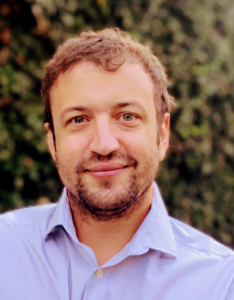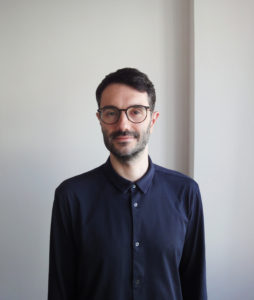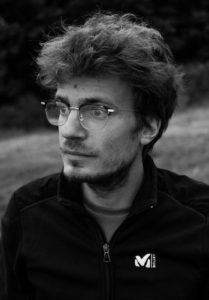Research area 3 – Objects, traces, mapping : evereyday experience of spaces
 Joseph holds a PhD in political anthropology from Leiden University (2019). His research interests include the intersections of extraction, environment, climate change and governance in and around the Congo Rainforest and Basin. As the 2nd largest tropical rainforest in the world, The Congo Basin is critical to global ecological systems and the longevity of human life on Earth, yet the Basin remains under threat. While six different states—Cameroon, Central African Republic, Democratic Republic of the Congo, Republic of the Congo, Equatorial Guinea and Gabon—occupy the Congo Basin, all pursue extractive and conservationist policies to quite varying degrees.
Joseph holds a PhD in political anthropology from Leiden University (2019). His research interests include the intersections of extraction, environment, climate change and governance in and around the Congo Rainforest and Basin. As the 2nd largest tropical rainforest in the world, The Congo Basin is critical to global ecological systems and the longevity of human life on Earth, yet the Basin remains under threat. While six different states—Cameroon, Central African Republic, Democratic Republic of the Congo, Republic of the Congo, Equatorial Guinea and Gabon—occupy the Congo Basin, all pursue extractive and conservationist policies to quite varying degrees.
How and why do these policies and attitudes evolve? How does the past inform the present, and hopefully the future? Last but not least, which ethnological, political anthropological, and political economic approaches can best help us understand the path to global resilience and sustainability?
Joseph is also working with CEFRES and Charles University to help build CUNI’s study of, and research capacities for, African Studies. Africa’s importance to world affairs has grown with trends in immigration, climate change, demographics, and renewed scrambles for African resources in the past decades, and CUNI is well placed to potentially become a leader in these fields. Please contact Joseph if you are interested in joining the Africa-Charles Project.
CV
Refereed Publications
“Rural Rentierism? The Rentier State Theory and Its Applicability to Local Spaces in Gabon.” In Oil-Age Africa, pp. 59-83. Brill, 2022.
“The Pitfalls of conservation in an African rentier state: The case of Gamba, Gabon (1960s-2015).” The Extractive Industries and Society 8, no. 4 (2021): 100995.
“Workshop Report: Tracing Legacies of Violence in French Equatorial Africa.” Africa Spectrum 54, no. 2 (2019): 162-172.
“Equatorial Guinea.” In Africa Yearbook Volumes 11-18. Brill, 2015-2022. (8 chapters)
“Equatorial Guinea Country Report.” Bertelsmann Transformation Index (2020,2022). https://bti-project.org/fileadmin/api/content/en/downloads/reports/country_report_2022_GNQ.pdf (2 reports)
Blog Posts
“Neoliberalism and the March of Impunity in Equatorial Guinea.” Africa is a Country, July 2019. https://africasacountry.com/2019/07/neoliberalism-and-the-march-of-impunity-in-equatorial-guinea
“Tropical Oppressors: State Violence in Equatorial Guinea.” ASCL Africanist Blog, 27 May 2019. https://www.ascleiden.nl/content/ascl-blogs/tropical-oppressors-state-violence-equatorial-guinea
Professional Background
Liaison Officer, Project Rethink, Czech Business Council for Sustainable Development—Prague (2021-2022)
Guest Researcher, Leiden University (2019-present)
Country Expert, ViEWS, A Political Violence Early-Warning System, Uppsala
University (2019 – 2021, Remote)
Lecturer of Academic Writing, University of Regensburg (2018)
Lecturer of Business and Economics in Africa, Institut National Supérieur des Etudes Economiques et
Commerciales – Paris (2013-2016)
Lecturer of Legal English, Université de Panthéon-Assas Paris 2 (2013-2017)
Lecturer of Legal English, Université de Panthéon-Sorbonne Paris 1 (2013-2015)





 Joseph holds a PhD in political anthropology from Leiden University (2019). His research interests include the intersections of extraction, environment, climate change and governance in and around the Congo Rainforest and Basin. As the 2nd largest tropical rainforest in the world, The Congo Basin is critical to global ecological systems and the longevity of human life on Earth, yet the Basin remains under threat. While six different states—Cameroon, Central African Republic, Democratic Republic of the Congo, Republic of the Congo, Equatorial Guinea and Gabon—occupy the Congo Basin, all pursue extractive and conservationist policies to quite varying degrees.
Joseph holds a PhD in political anthropology from Leiden University (2019). His research interests include the intersections of extraction, environment, climate change and governance in and around the Congo Rainforest and Basin. As the 2nd largest tropical rainforest in the world, The Congo Basin is critical to global ecological systems and the longevity of human life on Earth, yet the Basin remains under threat. While six different states—Cameroon, Central African Republic, Democratic Republic of the Congo, Republic of the Congo, Equatorial Guinea and Gabon—occupy the Congo Basin, all pursue extractive and conservationist policies to quite varying degrees.